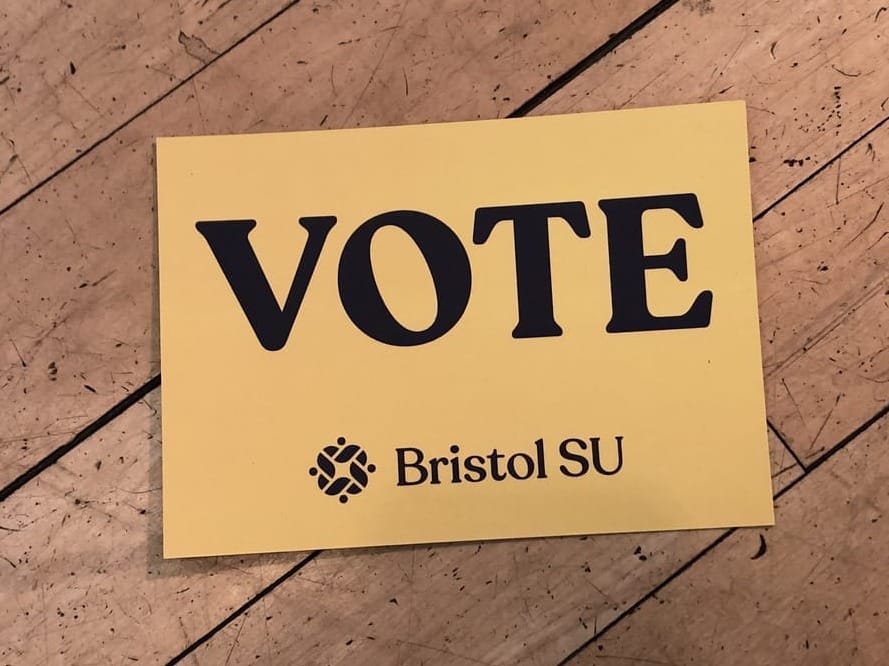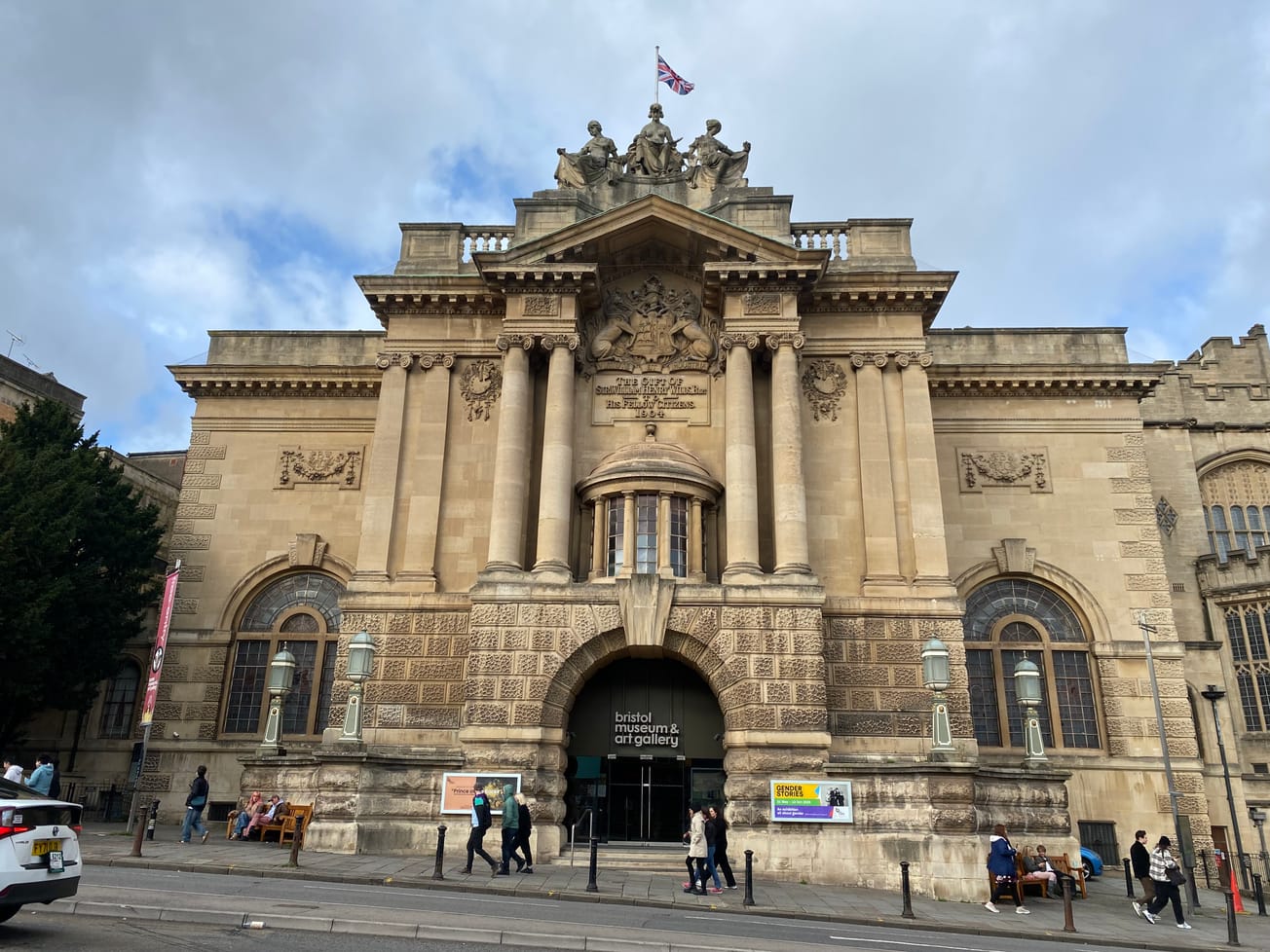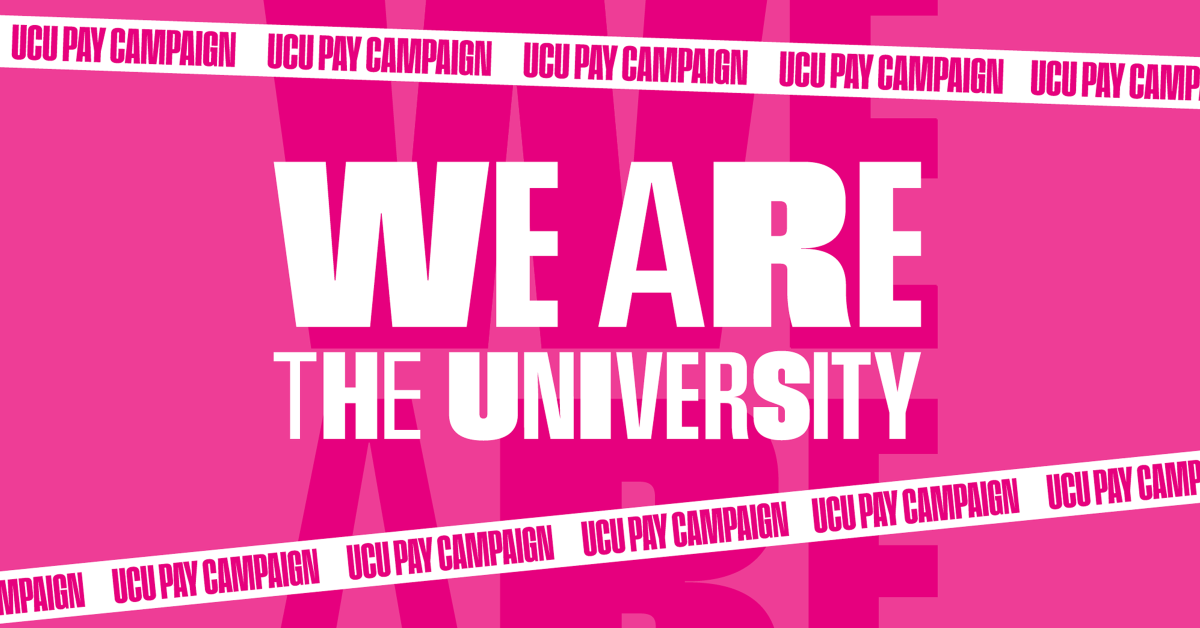By Milan Perera, Deputy Editor
University and College Union (UCU) and UNISON branches of the University of Bristol took part in a joint strike action on Friday, June 16, coinciding with the open day that was estimated to bring 40,000 people, including prospective students and their families, to the University.
As a result of the strikes, several open day activities, such as those scheduled at the School of Geographical Sciences and the Department of Film and Television, were disrupted. Speaking to Epigram, the volunteers at the Film and TV stall talked about the difficulties they faced as a result of the building closure.
The demonstrators assembled at various locations at the University of Bristol, such as the Arts and Social Science Library (ASSL), Richmond Building, Biomedical Science Building, Wills Memorial Building and Fry Building, before marching towards Senate House for a joint rally around 2.00pm.

The UCU represents a large number of academic staff across faculties, while UNISON constitutes University's professional services such as administration services, library services, IT and admissions.
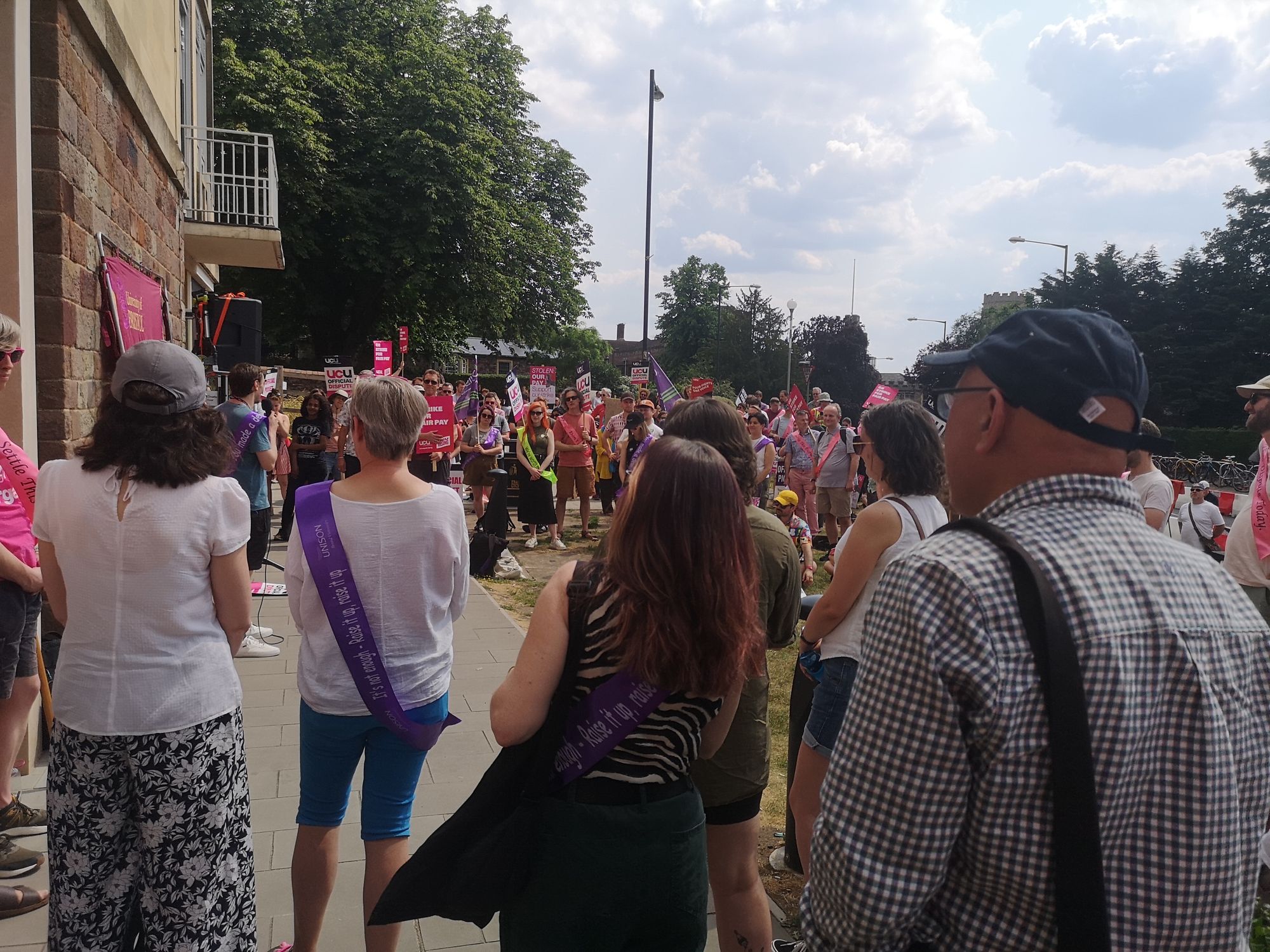
Both UCU and UNISON have rejected the University's current offer of a five to eight per cent pay rise, but demanded that any proposed pay rise should be in line with the current inflation rate of 11.4 per cent.
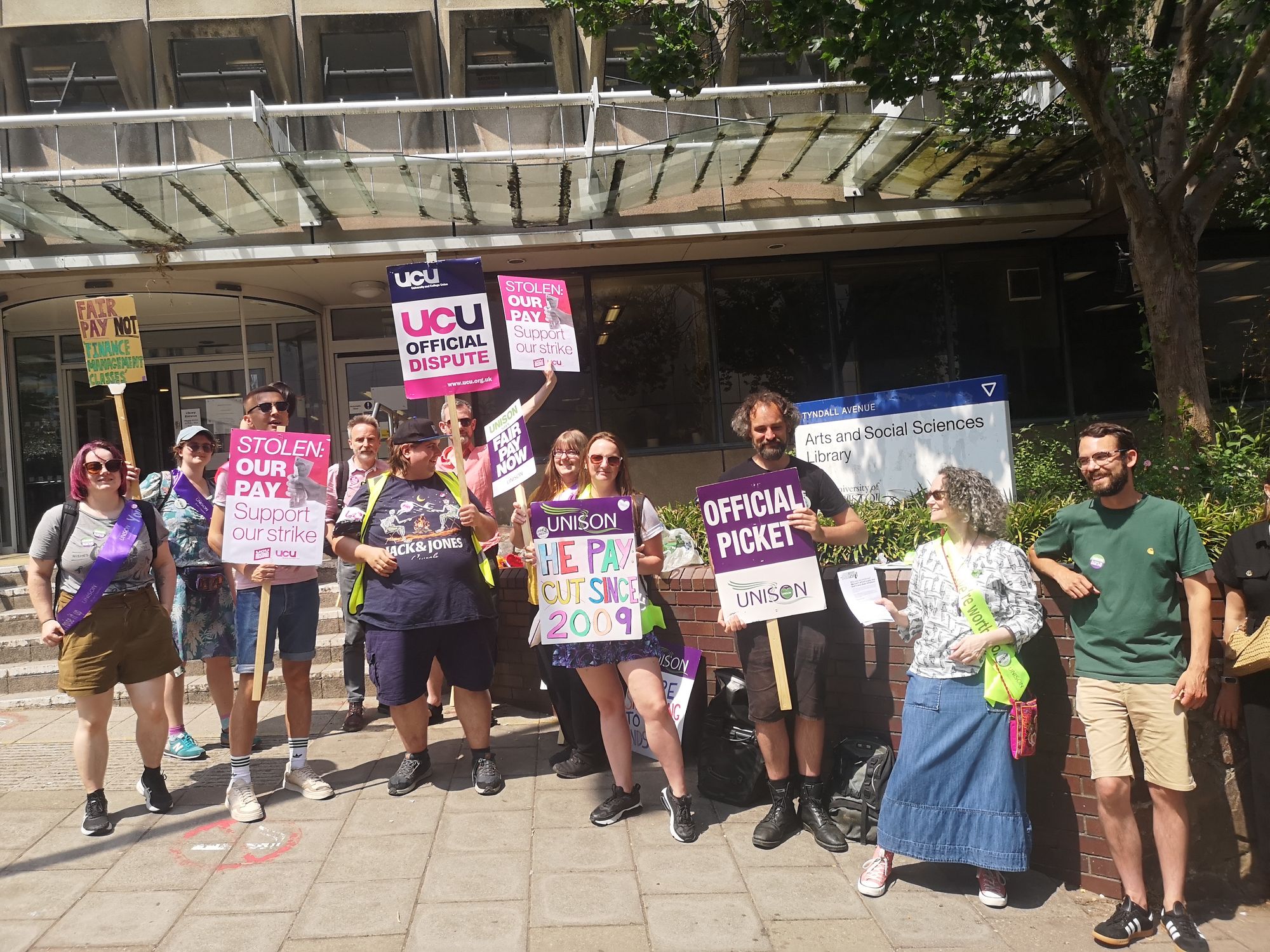
The demonstrators pointed out that their wages have failed to keep pace with the rising cost of living, making it increasingly difficult to make ends meet. They claim that their salaries have remained stagnant for far too long, while the University's revenues and budget have continued to grow.
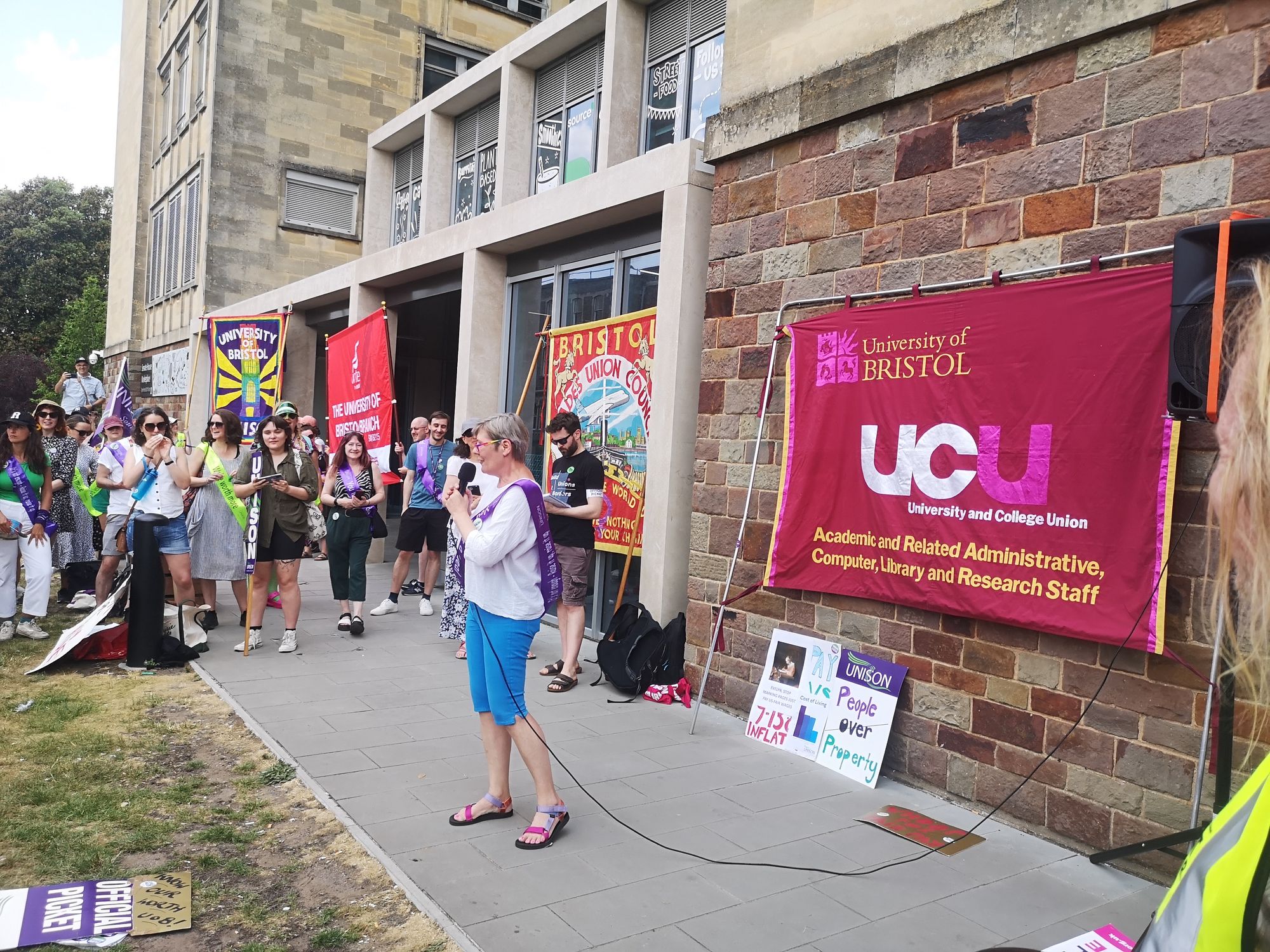
Speaking at the rally was Rebecca Staatz, Secretary of UNISON Bristol Branch, who pointed out:
‘..we agree that it’s a collegiate feeling of being together in the education sector working for students and supporting each other. The VC keeps stating that they cannot negotiate on pay and they keep saying that they have to go through UCEA. No they don’t! We are negotiating about where people sit on spine points. That can be negotiated locally. I’m fed up with the university making claims that are not correct and not true. And that is why we are here.’
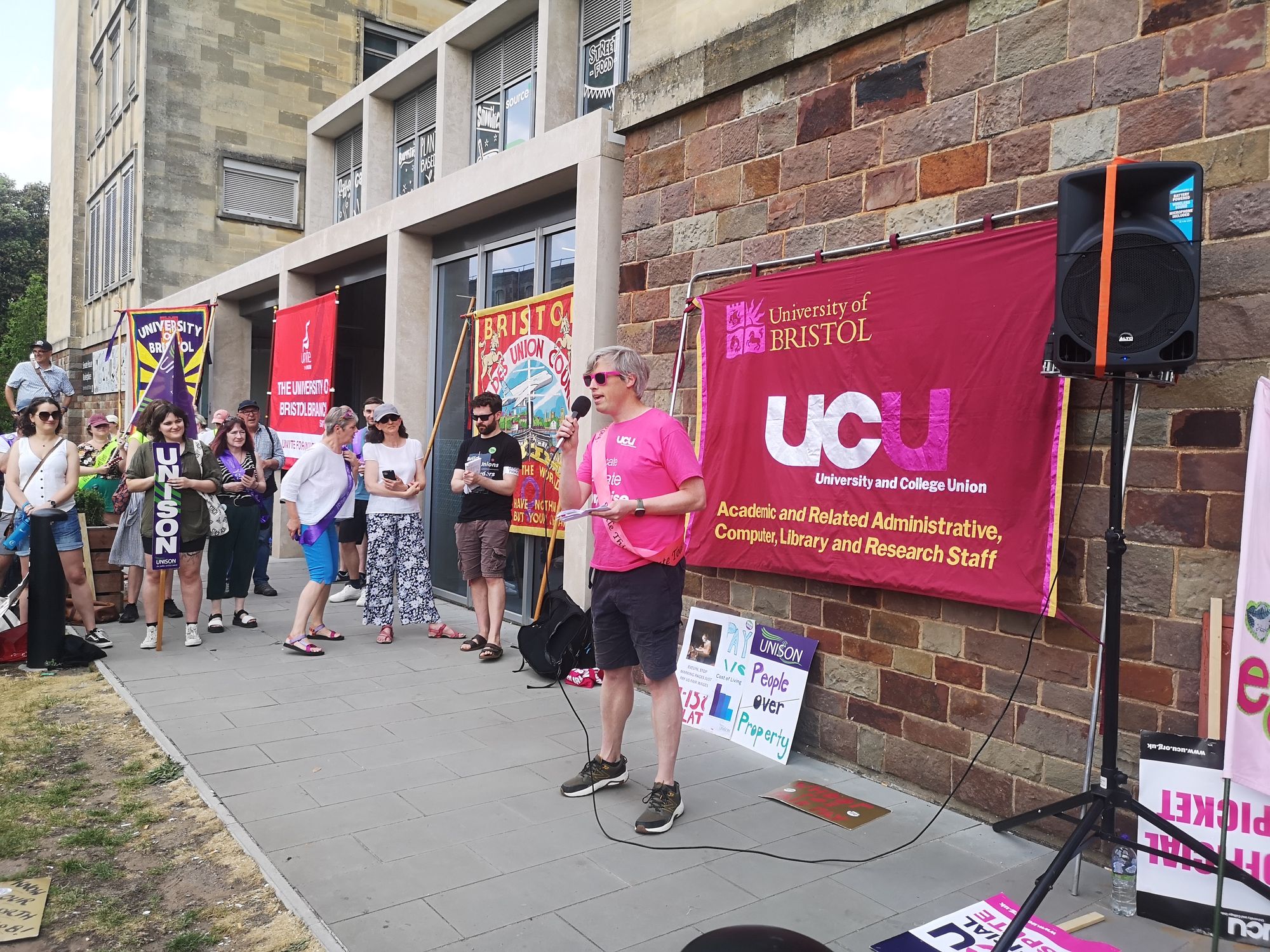
Dr. Jamie Melrose, Branch President for UCU Bristol, addressing the rally drew attention to the reasons that led to joint strike action on the university open day:
‘UCU is taking strike action because the University of Bristol has refused to withdraw its threat of 50 per cent punitive pay docking for start participating in our Marking and Assessment Boycott… Today our employers should be settling our disputes calling for talks and working to get an offer on the table. Settle this dispute today. Instead, we find them slashing our pay.
‘We find them also instigating an educational crisis pushing through their 2023 educational scandal. The university management are willingly and wilfully ignoring unmarked work and classifying and awarding and progressing our students degrees so that they simply do not stand up to scrutiny.’
Speaking exclusively to Epigram, Dr. Jamie Melrose said:
'UCU and the University of Bristol UCU remain committed to settling this dispute. The University and the employers' group that represents them in negotiations are committed only to their own inaction.
'UCU is sitting and waiting for the employers to come back to the negotiating table and make us an offer.
'Intsead, our management and university managements across the UK are spending their time, yes, trying to break the strike; but also, overseeing the award and classification of our undergraduate and postgraduate degrees on a completely discredited basis.
'Should Bristol University management be trying to settle this dispute, or should it be ripping up the rule book when it comes to students getting their degrees in 2023?'
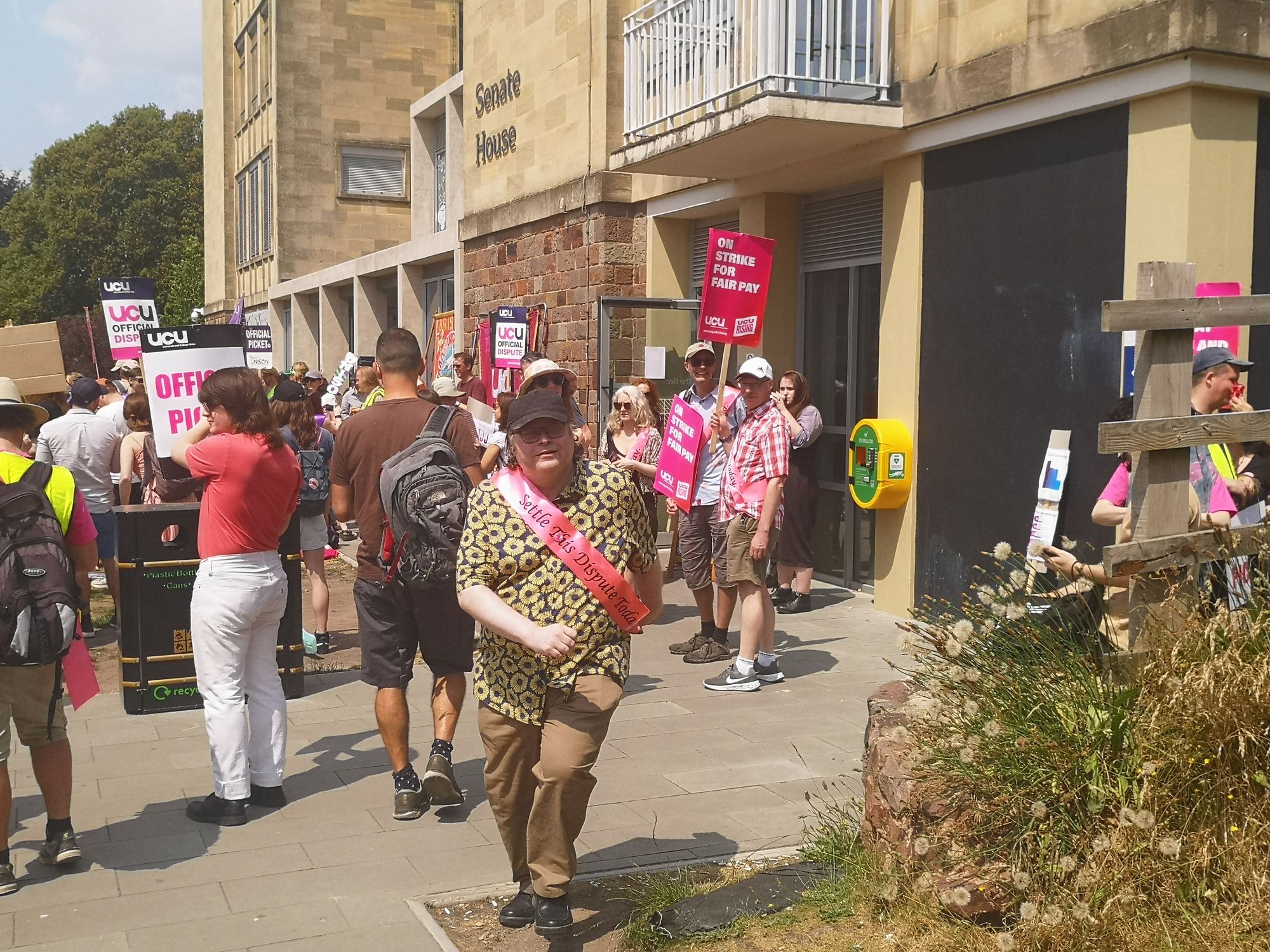
After the rally in front of Senate House, the protesters marched towards the College Green before concluding.
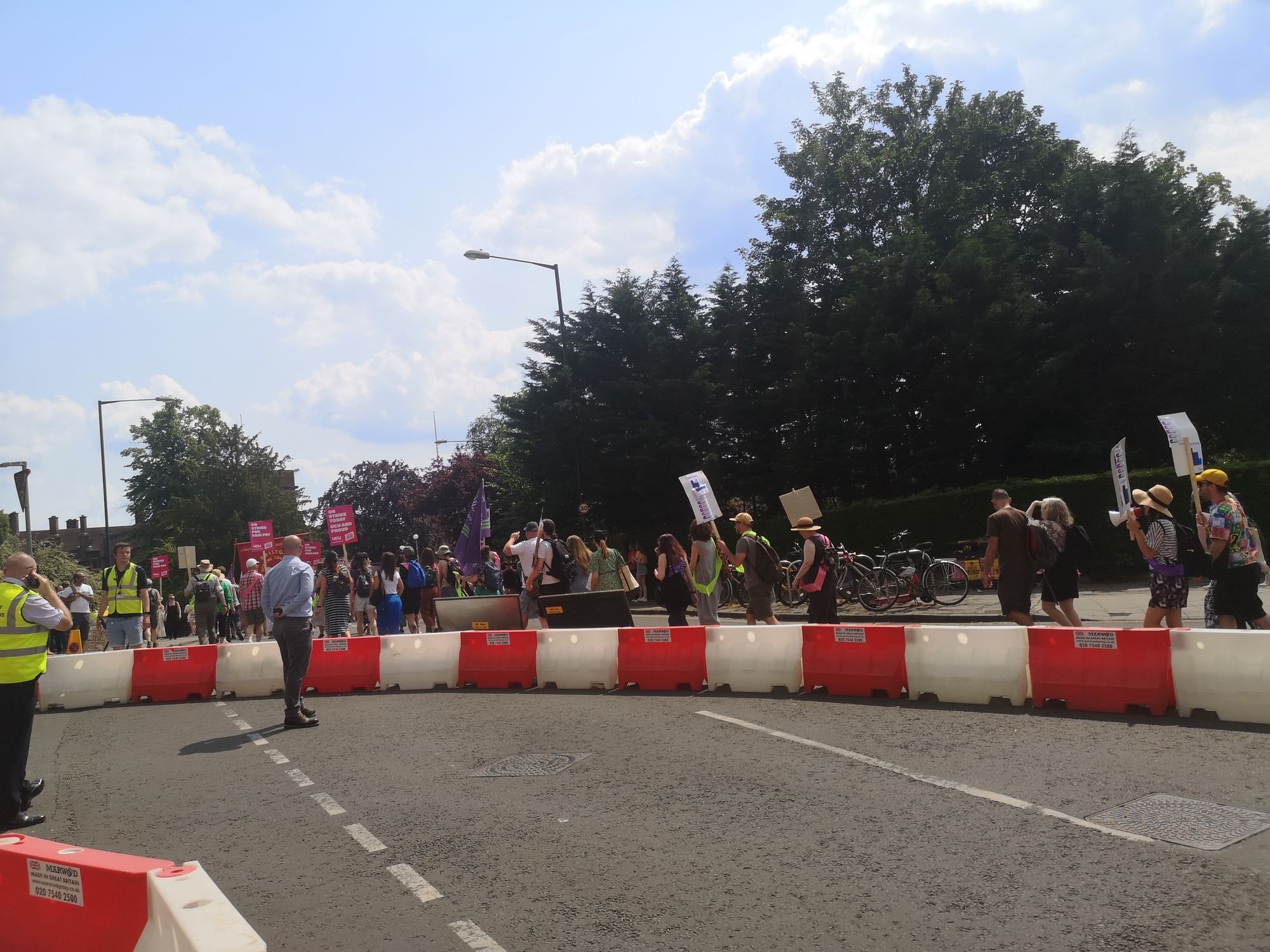
Earlier this month, the University of Bristol UNISON Branch decided to take five days of strike action on June 15, 16, 17, 18 and 19, if no resolution has been reached. The libraries, except the Wills Library were closed on Saturday, June 17, while all libraries remain closed on Sunday.
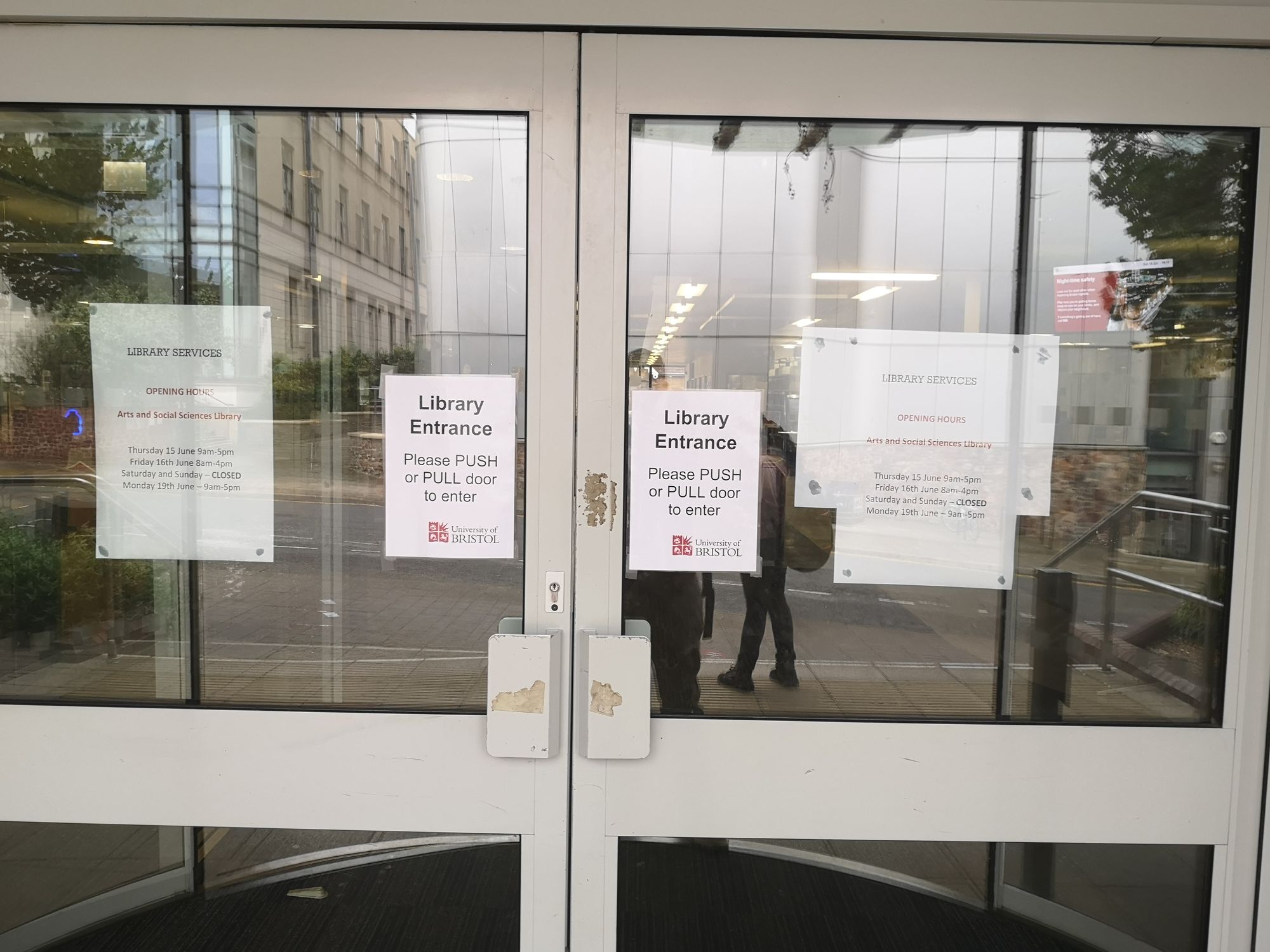
The University of Bristol opened its doors to more than 40,000 people for the two day event on Friday and Saturday (June 16 and 17) for its first open days of the year. The proceedings on Saturday, June 17 went ahead despite the UNISON strike action.
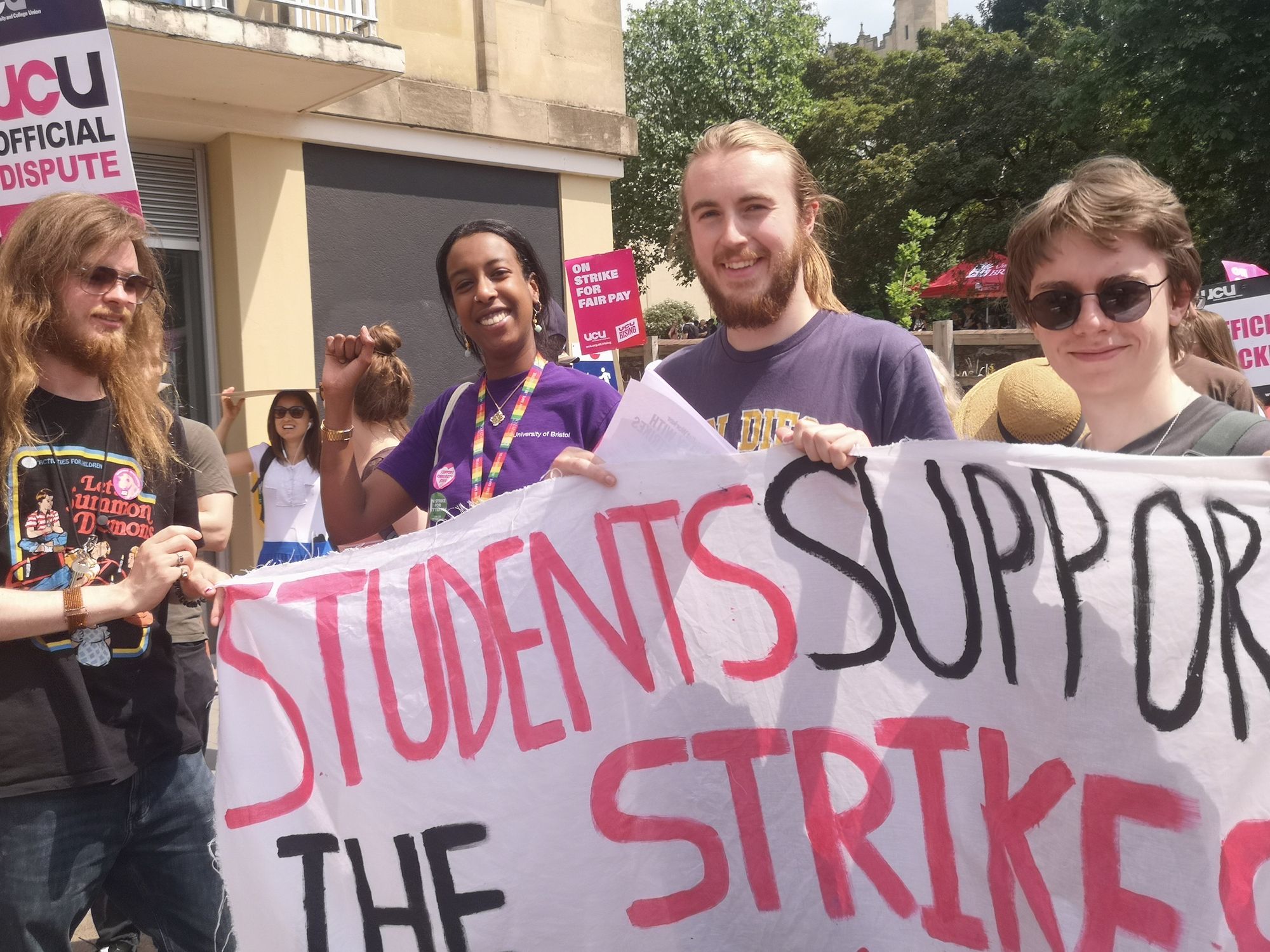
Regarding the situation, a University of Bristol spokesperson said:
‘Following a ballot of 14 Universities, UNISON colleagues have secured a mandate to take strike action in nine, one of which is the University of Bristol, over the 2022/23 pay award of 5-8%.
‘We’ve had confirmation of planned action from 15–19 June 2023, and UCU have confirmed discontinuous strike action on Friday 16 June in relation to their ongoing national dispute over pay and conditions which is currently affecting more than 100 universities.
‘We respect the rights of our staff to act where they feel strongly about issues which affect them, but these are not issues that Bristol can solve on its own. While we are working with our local unions here at Bristol, and are committed to continuing discussions, the sector needs to find affordable solutions and better ways of resolving these ongoing disputes.’
On strike actions which coincided with the University open days, Professor Evelyn Welch, Vice-Chancellor of the University of Bristol, said:
‘Despite the disappointing decision by UCU and Unison to hold industrial action today to coincide with the first of this week’s open days, we will still be going ahead as planned, although we have had to regrettably cancel a small number of sessions.
‘We’re not expecting Saturday’s open day to be affected and look forward to welcoming 40,000 people across both days as we showcase our fantastic University and city.
‘We fully respect the rights of our staff to act where they feel strongly about issues which affect them. This is a national dispute affecting over 100 universities and, while we are working with our local unions here at Bristol, the sector needs to find affordable solutions and better ways of resolving these ongoing disputes.’


